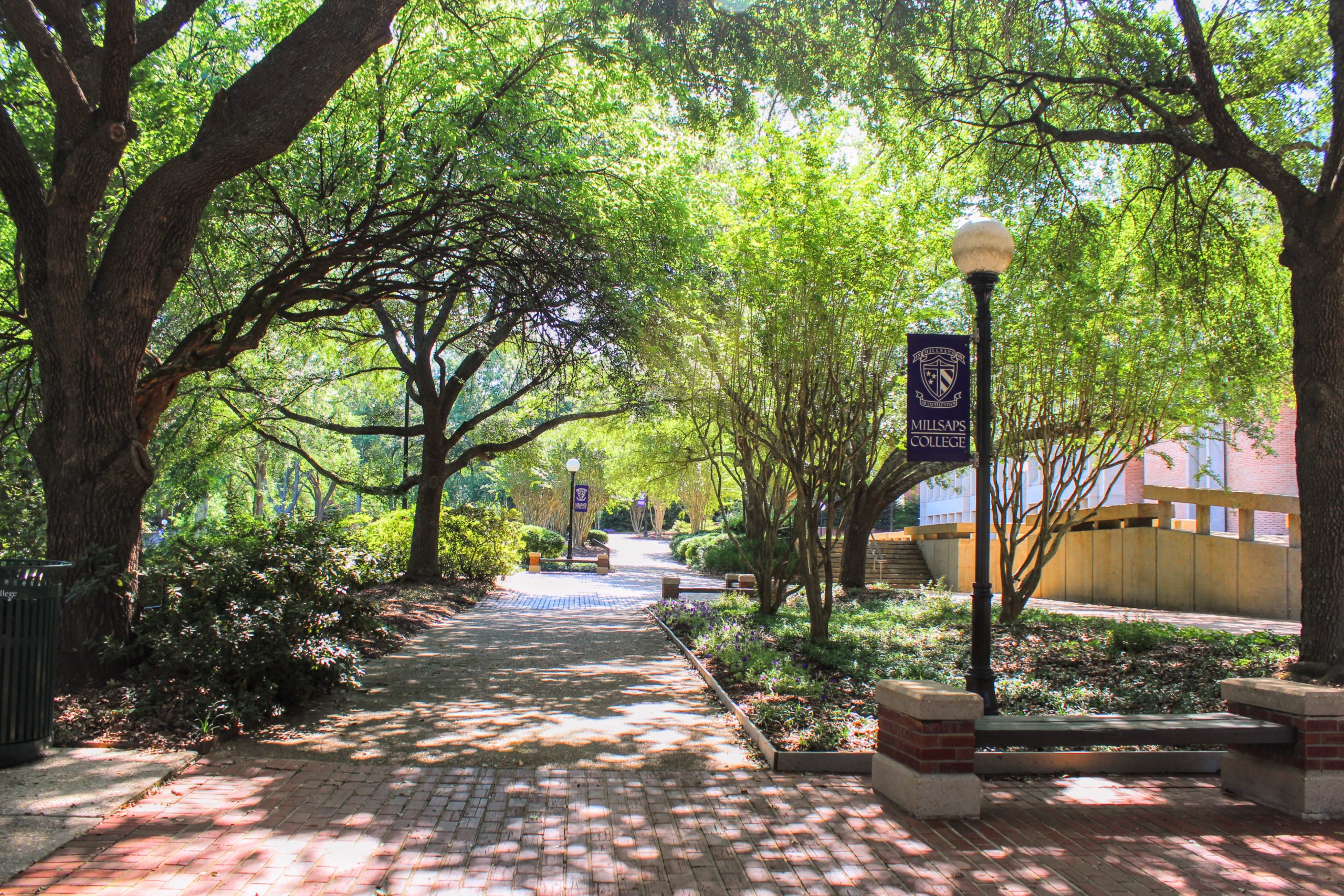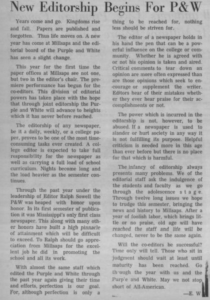Millsaps College prides itself on being a campus where “you belong here.” Yet, if this were really true, students who face physical disabilities would not have such a challenging time commuting around campus. This issue is known and ignored by faculty and staff, which begs the question: is Millsaps ableist?
Of course, Millsaps students love our beautiful campus’s stairs and hills and bricks, but many students struggle with injuries or disabilities because these areas do not accommodate their issues. As someone who has been on this campus both disabled and physically able, here are problems I noticed and what the faculty did and failed to do about them.
As a first-year student, I was on a scooter for one semester thanks to surgery on my left foot. I missed many parts of my first-year experience because of Millsaps’s lack of inclusivity such as living in Bacot, the first-year dorms. I could not live in Bacot for my second semester because that dorm does not have an elevator or ramp for those who cannot walk upstairs. Although many students complain about Bacot it is seen as a rite of passage. Sadly, I will never earn that rite. I also missed many classes due to the Olin elevator which was perpetually broken. Millsaps has many students who chose this college for its reputation with helping get into with medical school and dental school. An elevator that rarely works in the science building where these classes are held is cruel to those who are not physically able. Then there’s the fact that every inclusive passageway is off too the side, making it even less accessible. Take New South dorms. for example. The stairs guarantee a short walk right to the entrance of the dorm, but the ramp is located by Ezelle, an entirely different dorm. People who are physically able can take the longer route without struggling while people with disabilities or injuries are inconvenienced repeatedly.
Nicole Carter, care and accessibility specialist here at Millsaps told me something when I was on my scooter that has stuck with me ever since.
As Carter saw me struggling around campus, she looked at my scooter and said, “Yeah, Millsaps kind of sucks when it comes to those.” I nodded and went on with my day, but I cannot help but think if she is aware of these issues, then who else is? And why is nothing being done?
Dr. Ward, a professor in Chemistry here on campus told me a story of similar struggles he had experienced while injured. He said, “A couple of years ago I hurt my foot and remember not being able to open the door to Olin by myself. I had to wait for help. I mean those doors are heavy!” If a faculty member cannot be heard when struggling, what are the chances a student will?
These obvious shortcomings may decrease the number of students who choose Millsaps. Many other schools don’t have these issues.
Does everyone truly belong here? Or just those who are physically able?
Editor’s note
Administration responded:
“Grace mentioned “Yet, if this were really true, students who face physical disabilities would not have such a challenging time commuting around campus. This issue is known and ignored by faculty and staff, which begs the question: is Millsaps ableist?” This is an untrue statement. Since I began working here in Nov. 2019, we have had many ADA projects across campus. Over 60 sidewalk barriers have been removed which now allows students to more easily traverse campus in wheelchairs or walking aides. Sidewalks around New South and Reuben’s were leveled and widened. An ADA sidewalk was installed around the Gandhi statue to avoid having to use the existing steep concrete ramp. Automatic door openers were installed on the front entrance doors of John, Susanna and Charles Halls. Automatic openers were also installed on the doors leading to the parking lot at John and Susanna Halls. Charles already had an automatic door opener.
The American with Disabilities Act was signed into law on July 26, 1990 by President George H.W. Bush. Many of our buildings, including Bacot Hall, were built prior to this and were designed with no thought of an occupant having a physical disability. This makes it very difficult to retrofit these buildings to be ADA accessible. In spite of our ADA challenges, we are continually looking for and addressing issues as we are able. I have been working with Nicole Carter on a project to identify ADA parking spaces on an interactive campus map. Nicole is also working to identify signage opportunities for ADA wayfinding across campus. She is a very good resource for anything ADA related.
In regards to the elevator in Olin Science Hall being ‘perpetually’ down, that is also untrue. Perpetually means always, forever, permanent, etc. Since Jan 2020, the elevator in Olin has had 15 services calls for not being operational. Seven of those calls were actually tests or maintenance inspections required by state law.”

